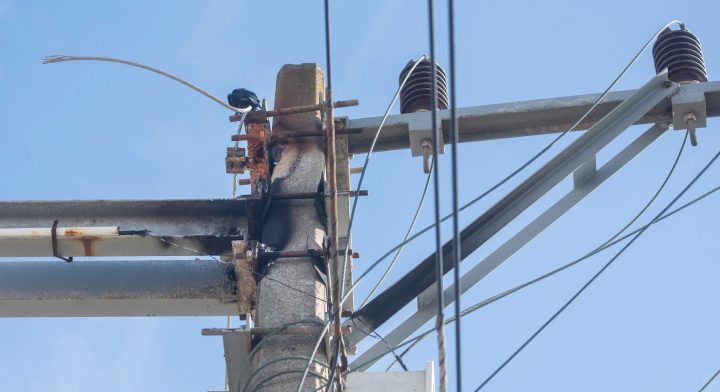SECURITY BOOST
Cape Town to spend R40m on curbing ‘scourge’ of energy infrastructure vandalism

As the approved 2022/23 City of Cape Town budget comes into effect in July, the City of Cape Town says it will spend R40-million on securing critical infrastructure, boost security patrols in hotspot areas and deploy permanent security to protect strategic energy infrastructure.
The City of Cape Town has earmarked R40-million to curb and prevent “the scourge of vandalism” of critical energy infrastructure in communities.
“Incidents of electricity infrastructure vandalism continue to be recorded in all areas in the metro, including damage to streetlights. Damage to streetlights and to kiosks is among the most affected… Together with residents, we are determined to bring an end to infrastructure vandalism,” the city said in a statement.
Cape Town isn’t the only city battling vandalism of energy infrastructure. The City of Johannesburg said in 2019 it was spending more than R50-million a year “in repairs and replacement of damaged or stolen infrastructure. This money could be better spent on service delivery initiatives in different parts of the city.”
City Power, the city’s electricity utility, had nearly 1,650 cable theft and vandalism incidents in 2017/2018, resulting in the utility losing R13-million. In the 2018/2019 financial year, there were 1,865 incidents that cost City Power R18-million.
In an interview with 702 on 2 May, Michael Sun, Joburg mayoral committee member for environment and infrastructure services, said the city had spent R100-million in the past year on protecting its infrastructure.
In intensifying security for energy infrastructure, City Power was working with private security contractors, the South African Police Service, the Johannesburg Metropolitan Police Department and community policing forums, Sun said.
“In the short term, we have also been installing CCTV cameras and alarm systems at these hotspots to ensure that we have a better security detail around this vulnerable infrastructure,” he added.
The City of Johannesburg has also reported increasing attacks on security personnel at their energy infrastructure. In April, City Press reported that two security guards were killed and another shot in the head in attacks by alleged cable thieves.
In February, the City of Cape Town recorded R1-million in damage from vandalism and illegal connections. Most of the incidents occurred in Hanover Park, Heideveld, Athlone, Manenberg, Atlantis and in the central city areas of Woodstock and along Philip Kgosana Drive.
Damage to infrastructure in April caused power outages in Gugulethu, Manenberg and Heideveld. Fixing the damaged infrastructure cost the city R160,000. Mayco member for energy Beverley van Reenen was reported as saying at the time that the cost of vandalism and theft of electricity cables in the city in February came to R1-million in 38 reported incidents.
Cape Town’s “R40-million injection” will focus on “securing critical infrastructure in all communities, boosting security patrols in hotspot areas and permanent security deployments to strategic energy infrastructure,” the city said in its statement.
“Enhanced support from members of the public and city efforts” had led to a downward trend in the number of vandalism, theft and illegal connection incidents in some areas, it said. “However the overall number, as well as recurring incidents in the city, remain high.”
The city will also embark on a “vandalism awareness and education drive” so that residents have a greater understanding of the impact and cost of vandalism in their areas. “We call on our communities to stand by us and to work with us to help protect community infrastructure,” Van Reenen said.
When Police Minister Bheki Cele tabled the police budget vote a month ago, he said task teams would be established to fight cable theft and energy infrastructure damage.
Cele said the teams would focus on 18 identified hotspots. “Task teams will also tackle essential infrastructure crimes such as the tampering, damaging or destroying of infrastructure related to energy, transport, water, sanitation and communication services. Critical infrastructure crimes will also be on their radar, such as the attacking, damaging or theft of fuel pipelines and related crimes,” said Cele. DM
Report damage to municipal electrical infrastructure in Cape Town: SMS 31220 or email [email protected].


















 Become an Insider
Become an Insider
Comments - Please login in order to comment.